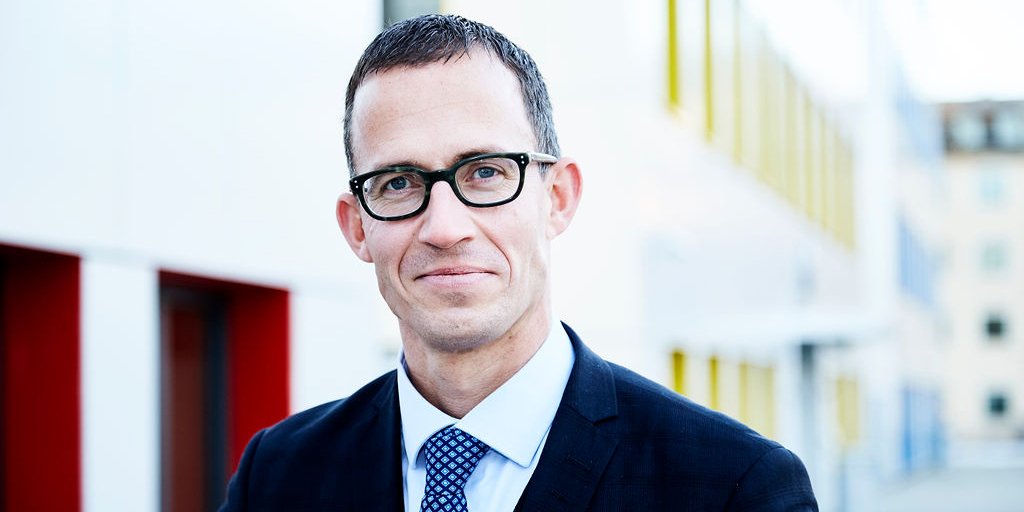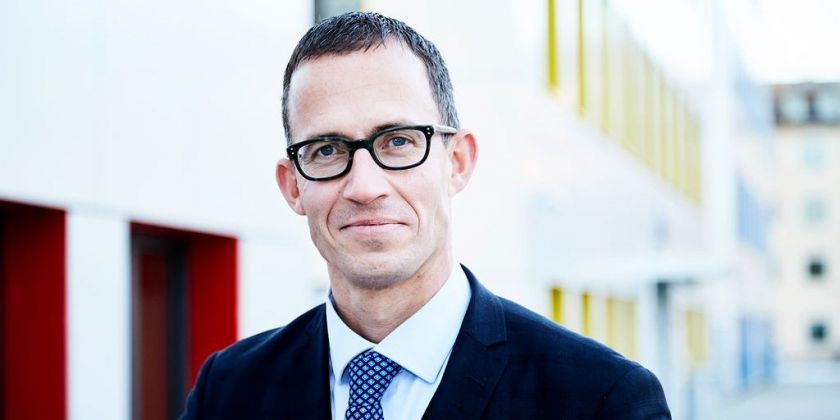More precise cancer treatments with digital solutions

Ketil Widerberg, general manager of Oslo Cancer Cluster, gives his perspectives on why EHiN and digital health are important for faster development of new cancer treatments in Norway.
This interview was first published on EHiN’s website in Norwegian.
What do you think are the biggest challenges in the health sector today?
One challenge in cancer treatments is to give the right medicine to the right patient at the right time. This is called precision medicine and means that cancer treatments can to a greater extent be tailored to the individual patient. The government recently proposed more money for this in the State Budget for 2021. There are already digital tools that can identify more targeted treatments ready to be put to use. One example is our member NEC OncoImmunity, who are using artificial intelligence to develop new personalised immunotherapies against cancer.
Another big challenge is to shorten the development time for new cancer medicines. The corona pandemic has shown us that it is possible to quickly develop new treatments, initiate clinical studies and gather data. The analysis of health data will be essential for the development and approval of new treatments. It is important that national infrastructure, such as the Health Analysis Platform, is put in place. One inspiring company is our member Ledidi; their software solution was recently approved for all Covid-19-studies at Oslo University Hospital. This tool can also be used in cancer research to make quick statistical analysis and to cooperate across research groups, hospitals and countries.
A third challenge is how we involve the cancer patient in their own treatment. New technology, for example the data platform from our member Kaiku Health, enables the patients to self-report symptoms in real-time. If we can gather data on pain and side effects every day, instead of every third month, our understanding of cancer improves and the doctor can do a better job.
How can you contribute digitally to the health sector?
Oslo Cancer Cluster contributes to the digitalisation of the health sector by connecting pharmaceutical companies and biotech start-ups in cancer with tech companies.
Among other things, we are coordinating the Horizon 2020 EU-project “DIGI-B-CUBE”, which provides funds to collaboration projects between small to medium-sized companies in IT and health. They try to find digital solutions to challenges in the health sector.
Our cluster is also a part of the consortium «NORA EDIH – Norwegian Artificial Intelligence Research Consortium» that was recently selected as one of eight Digital Innovation Hubs that Innovation Norway will recommend to Digital Europe Programme. These innovation centres will be essential to stimulate increased use of digital solutions.
How has Covid-19 affected you?
Oslo Cancer Cluster Incubator has put several measures in place to keep laboratories and offices open to ensure that important cancer research and patient treatment can continue as normal during the pandemic. Start-ups, researchers and the incubator have received more support from the financial apparatus for business development, in order to strengthen the health industry in this period of uncertainty. In addition, the Incubator has updated its IT infrastructure to facilitate the increased use of digital solutions from home offices and streaming of meetings and events.
Covid-19 has proven that the health industry is important for society – to fight pandemics, to contribute to better health and to create value. Norwegian companies in health experience great interest from investors now. One example is our member Vaccibody, who signed the largest biotechnology agreement in Norway ever this month and later was listed on Merkur Market (Oslo Stock Exchange), valued at NOK 17 billion.
Covid-19 has also created challenges for cancer patients that missed treatments because of the risk of getting infected and for those who have avoided important health checks because they don’t want to put any extra stress on the health services. Pharma companies experienced a challenge to keep clinical trials running in the beginning of the pandemic, but most hospitals have facilitated this now.
One positive side-effect of the pandemic is that social distancing has led to a rapid digitalisation of the health sector and put digital health at the top of the agenda.
What do you expect from EHiN?
EHiN is an arena that connects cross-sectional initiatives in digitalisation and biology across public institutions and private companies. It is a meeting place to find good digital solutions that can be implemented in the health sector and can position Norway internationally in long-term trends, which also creates great value for society.
At EHiN, you will meet different decision makers and participate in setting the political agenda for e-health. We need to continue to stress the importance of good public-private collaboration to develop, test and approve treatments for cancer patients.
What else would you like to communicate?
EHiN is important because collaboration is the key to create changes in health. We are working now with an application to become a health catapult centre, in collaboration with several innovation environments in health. If we succeed, we can strengthen the health industry by offering important services to small and medium-sized enterprises in digital health.
We also think it is very positive that the Norwegian Cancer Society have a good collaboration with EHiN. It shows how important e-health in Norway is for the entire cancer community.
Meet Ketil Widerberg as he moderates the session “Fremtidsmennesket” on 10 November 2020 at 11:00-12:00 during EHiN 2020.

 OCC
OCC



